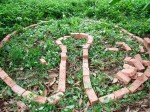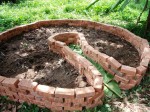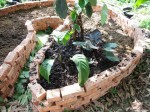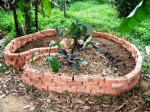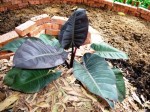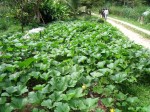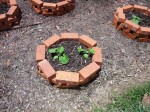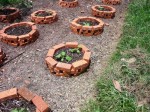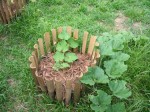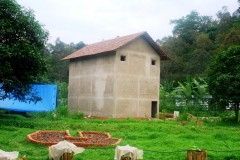Aug 29, 2009
The Tree
Tok Guru on tree planting and the act of Ibadah:
00:36 Posted in Blog | Permalink | Comments (0) | Tags: tok guru, ibadah
Aug 23, 2009
Preventive Measures for Flu - Revisited
In 2005 we posted on preventive measures one can take against Avian Flu. The strategies are still valid against A(H1N1). To read the post, click here:
http://dqfarm.blogspirit.com/archive/2005/09/26/preventiv... .
We no longer teach Qi Gong (one of the strategies), so if you are keen, you can join a local class in your neighbourhood.
Also, there have been numerous reports that TCM (Traditional Chinese Medicine) preparations for flu are effective against A(H1N1). Visit a reputable centre such as Tung Shin.
09:13 Posted in Blog | Permalink | Comments (0) | Tags: h1n1, flu prevention
Aug 21, 2009
A Spot Of Darkness
I have this thing about Darkness. So we decided to build a spot of darkness in a corner of the farm; a spot dedicated to dark colored plants. Plants with dark leaves, dark flowers, dark tubers.
The plants will be grown in a raised bed with a Permaculture key-hole design.
Lay out the design with the key-hole (used for walking when tending the garden)
Build up the wall; how high depends on how deep-rooted the plants are. (These are left-over clay bricks from the walit house).
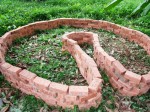
Put in the planting material; here, dead leaves, some very old broken down chicken manure, some soil etc.
Then add in the compost and the plants.
Then mulch it.
Here we have only completed planting just one corner while we hunt for more dark plants. We planted some aroids from the jungle, such as this (haven't got the name yet. Click for close-up). :
And a Tacca Chantrieri from the jungle, which flower is black (Click on photo for close-up) :
Photo of the Tacca flower from here
Once the garden is matured, perhaps we can sip dark pu erh tea and savour it with a melancholic Stratovarius playing in the background.
12:04 Posted in Blog | Permalink | Comments (0) | Tags: raised beds, key hole garden, permaculture, dark colored plants.
Aug 17, 2009
Raised Beds – More Efficient?
We were quite happy with our 71kg of pumpkins from the trial 35ft x 10ft 'no-dig' patch.
From that first pilot, we have decided it may be more efficient all-round to grow pumpkins in raised-beds. Here's a couple of pictures of our pumpkin raised-bed patch:
Of course we are not advocating using clay bricks for the raised-beds. We happened to have some left over from the walit house.
You can also use bamboo as the next picture illustrates:
It will be interesting to know the overall cost-effectiveness of this 'raised-bed' method for growing pumpkins in terms of energy and effort used, production, etc.
15:43 Posted in Permaculture | Permalink | Comments (0) | Tags: raised beds, pumpkins, permaculture
Aug 10, 2009
Caviar of the East - Edible Bird's Nest
The swiftlets of the species, Aerodramus fuciphagus and Aerodramus maximus produce edible nests called the caviar of the East, primarily because of the high price.
The swiftlets come down from the forest reserve adjoining our farm to feast on the many insects that the farm is home to. We are building a 3 storey building for the birds to harvest their nests in a sustainable manner.
Barely three weeks after we started work, the building is now on its final third level. And today while the outside temperature was hovering between 30 to 34 celcius, the inside was a constant 24 celcius, the ideal temperature for the birds. The wonders modern construction methods can do!
The key to successful swiftlet rearing is stability of temperature throughout the day and night. We are off to a good start.
The last floor. Click on pic for a close-up look.
Update September 13th, 2009 :
click to enlarge
September 13th, almost there. The fasting month has delayed things somewhat as some of the workers went back to their home villages. Hopefully, after Hari Raya Aidilfitri we can start calling the birds to come to their new home.
10:54 Posted in Blog | Permalink | Comments (2) | Tags: walit, swiftlets, aerodramus fuciphagus, aerodramus maximus








